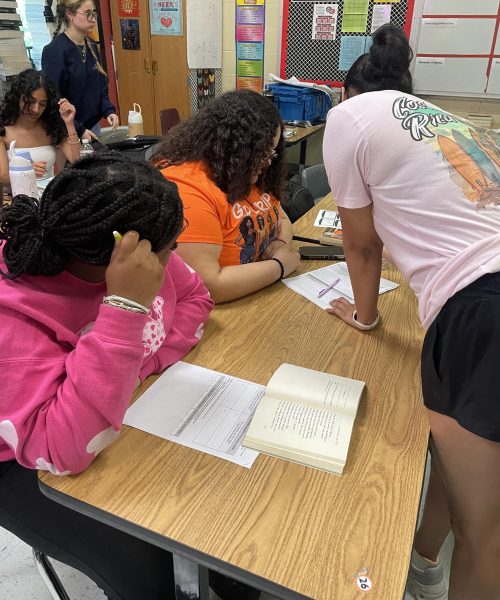Remembering 16th Street Baptist Church
An Interview with Dunbar teacher, Mrs. Maull
During the Civil Rights Movement in the 1960s, white southerners became outraged at the persistence of the African American activists. Some used verbal intimidation to show white superiority while others resorted to physical abuse.
Less than a month after Martin Luther King Jr.’s “I Have a Dream” speech, one of these instances occurred in Birmingham, Alabama. On Sunday, Sept. 15, 1963, members of a Ku Klux Klan group planted a bomb inside the 16th Street Baptist Church. As the children’s choir descended the basement stairs, the explosive was triggered, resulting in the death of four girls under the age of 15 and injuring 22 others.
Mrs. Tresea Maull, a life skills teacher at Dunbar, is grateful that more people were not injured during the bombing. Her now-husband and his siblings were inside the church when it was bombed. Mr. Maul, a teenager at the time of the incident, is still a member of the church. Mrs. Maul’s two younger brothers in-law and younger sister in-law were able to escape the church with no injuries. Another of Maul’s sisters has written a book called While the World Watched about the bombing and the Civil Rights Movement in Birmingham. In the novel, she explains life under the Jim Crow laws and her personal experience of civil rights triumphs over the past 50 years.
Birmingham, Alabama, was a major spot for segregation, retaliation and activism during the 1960s. Martin Luther King Jr. even marched in downtown Birmingham in early 1963. 16th Baptist Church was located in the middle of the civil rights action.
Today, the church still stands and the damage has been repaired. It is open to the public with a small museum in its basement. The four girls who were killed in the bombing are remembered with a shrine; there are also shelves in the museum with books and articles about the civil rights movement. The church building no longer holds weekly services, but the members still worship every week at a new location.
Black History Month isn’t only celebrated in Alabama; Lexington also recognizes respect for the African American community during February. The Lexington Opera Theater is playing Memphis from Feb. 14-16 and the “Lift Every Voice” Mass Choir Fellowship Concert on Feb. 23. However, celebration of black history doesn’t need to be confined to a month.
“Black leaders shouldn’t be celebrated one time,” said Mrs. Maul. “For me, black history is year round. It should be celebrated all the time.”
I'm obsessed with manatees.



























